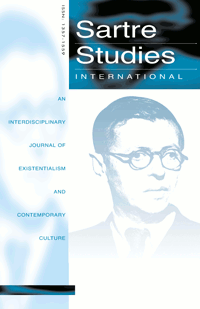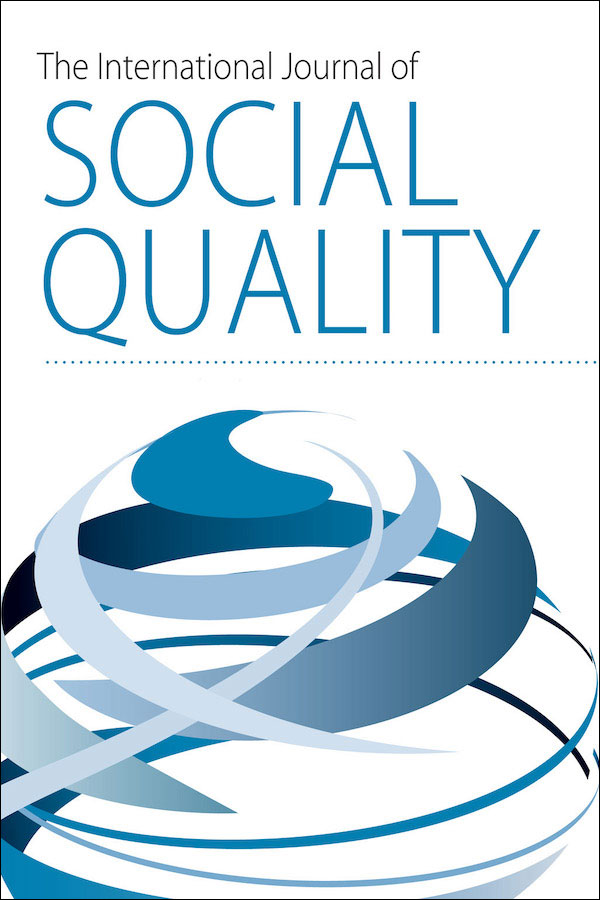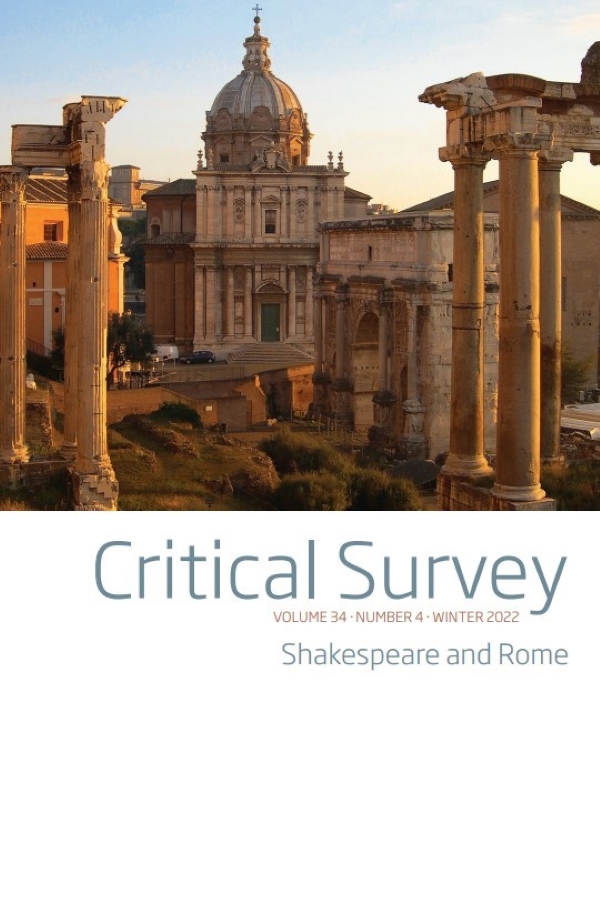Continue reading “Hot Off the Press – New Journal Issues Published in May”
Tag: political science
Jihadist Interpretation of Dreams
By Iain R. Edgar
Excerpted from The Dream in Islam: From Qur’anic Tradition to Jihadist Inspiration by Iain R. Edgar.
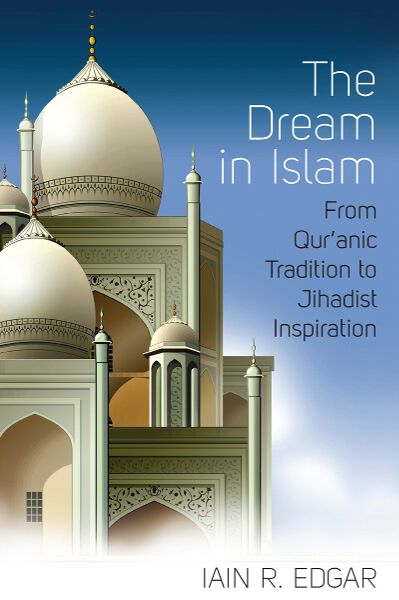 Research has shown that some jihadists take, or at least claim to take, dreams into consideration when they make decisions to join a group, become a foreign fighter, volunteer for operations, or pursue particular military strategies. There are several examples of jihadists claiming to make such decisions almost entirely based on alleged dreams. Thus far there is limited evidence of this in relation to the Islamic State (IS), but there are three important cases worth mentioning.
Research has shown that some jihadists take, or at least claim to take, dreams into consideration when they make decisions to join a group, become a foreign fighter, volunteer for operations, or pursue particular military strategies. There are several examples of jihadists claiming to make such decisions almost entirely based on alleged dreams. Thus far there is limited evidence of this in relation to the Islamic State (IS), but there are three important cases worth mentioning.
Hot Off the Press – New Journal Issues Published in February
An Interdisciplinary Journal of Existentialism and Contemporary Culture
Volume 21, Issue 2
This is a special issue on the Diverse Lineages of Existentialism conference held in St. Louis from June 19 to 21, 2014. This conference featured a number of panels devoted to the work of eminent Sartre scholars: Ronald Aronson, David Detmer, Thomas R. Flynn and Ronald Santoni. We are pleased to present articles based on the papers presented at those panels in this issue.
Continue reading “Hot Off the Press – New Journal Issues Published in February”
Habits of Austerity
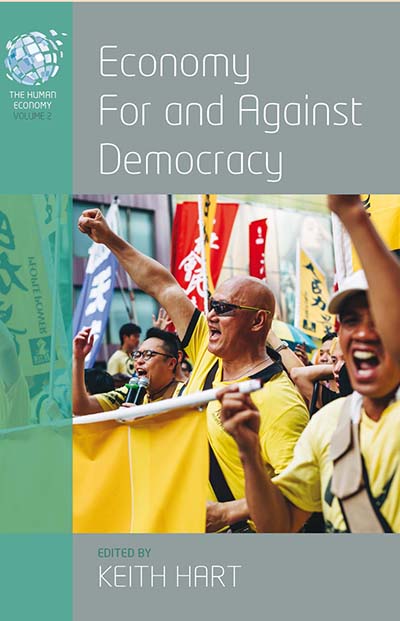 The following is a guest blog post written by Jürgen Schraten. Below, Schraten discusses his chapter in the recently published book, Economy for and Against Democracy.
The following is a guest blog post written by Jürgen Schraten. Below, Schraten discusses his chapter in the recently published book, Economy for and Against Democracy.
I wrote the first chapter of the book Economy For and Against Democracy, edited by Keith Hart and published this month by Berghahn Books – you can buy the book here with a 50% discount until 20 December; use the code HAR449. The chapter is titled “Habits of austerity: financialisation and new ways of dealing with money”. As the title suggests, it focuses on the financialisation of everyday life in South Africa within the global context of the concomitant expansion of financialised markets and government austerity policies.
Meeting of Minds and Disciplines: Authors Discuss ‘Anthropology & Political Science’
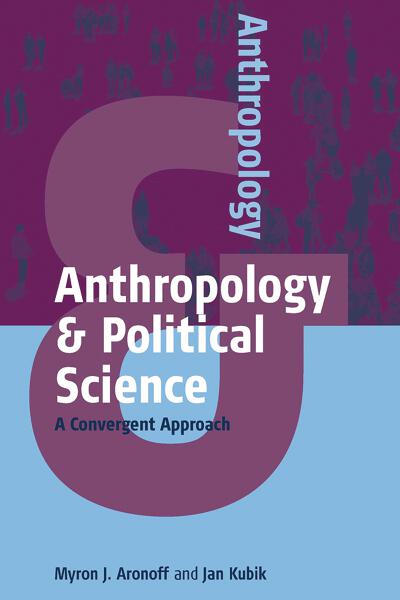 Myron J. Aronoff and Jan Kubik’s Anthropology and Political Science: A Convergent Approach was published in paperback last November. Following, the co-authors reflect on the conception of the book and their writing process, as well as its reception since the initial publication.
Myron J. Aronoff and Jan Kubik’s Anthropology and Political Science: A Convergent Approach was published in paperback last November. Following, the co-authors reflect on the conception of the book and their writing process, as well as its reception since the initial publication.
I lived abroad for a dozen years from 1965-1977 having earned a Ph.D. in social anthropology from Manchester University and in political science from UCLA. The Chair of the Department of Political Science at Tel Aviv University, where I had taught for eight years, asked me what I would write about when I returned to the US to take up my position at Rutgers University. I told him that, among other topics, I intended to write an analysis of the convergent approach bridging anthropology and political science that I was developing. I then wrote my third book on Israel and updated and expanded my earlier book on the Israel Labor Party.
“When I read Machiavelli, Marx rang true”
 The below is a special guest post written by Manjeet Ramgotra, contributor to Theoria, Issue 139, and author of ‘Conservative Roots of Republicanism.’
The below is a special guest post written by Manjeet Ramgotra, contributor to Theoria, Issue 139, and author of ‘Conservative Roots of Republicanism.’
My article “Conservative Roots of Republicanism” is a result of research I conducted for my PhD. Initially, I had begun to work on Rousseau. I developed a critique of Pocock’s understanding of republicanism as antithetical to liberalism founded on a discourse of rights and the social contract. I contended that as Rousseau combines republicanism, rights and the social contract, that Pocock’s view must be ill-founded. As I began to work on Rousseau and a critique of Pocock’s Machiavellian Moment, my advisers recommended that I read Montesquieu who influenced Rousseau and Machiavelli, the central character of Pocock’s work. I included these thinkers in my study and was further advised to examine Cicero. On reading works of Cicero, I realized that although all individuals can promote the public good, not all participate on an equal basis in the political realm. In fact, the people participate only on a partial basis to protect their freedom to live in security from the arbitrary domination of the nobility. On reading Machiavelli’s Discourses, it became clear that the class struggle between the nobles (the haves) and the people (the have-nots) was essential to his republicanism. In fact the unequal participation of each class to protect its own interests – political authority and control for the nobles and political liberty or the freedom to live in security and without fear of arbitrary domination for the people – made Marx’s claim that history is about the struggle between social classes ring true. However, I did not adopt a structuralist or a Marxist approach; rather much of my argument is a result of exegetical and contextual analysis. Continue reading ““When I read Machiavelli, Marx rang true””
Interview with the Editors- Alex Latta and Hannah Wittman, editors of Environment and Citizenship in Latin America
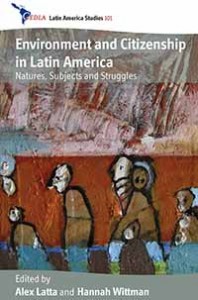 Alex Latta and Hannah Wittman are the editors of Environment and Citizenship in Latin America: Natures, Subjects and Struggles, recently published by Berghahn. The work aims to advance debates on environmental citizenship, while simultaneously and systematically addressing broader theoretical and methodological questions related to the particularities of studying environment and citizenship in Latin America. Here, they discuss the origins of their interest in the topic, where they see the work fitting within the field, and the process of putting the volume together.
Alex Latta and Hannah Wittman are the editors of Environment and Citizenship in Latin America: Natures, Subjects and Struggles, recently published by Berghahn. The work aims to advance debates on environmental citizenship, while simultaneously and systematically addressing broader theoretical and methodological questions related to the particularities of studying environment and citizenship in Latin America. Here, they discuss the origins of their interest in the topic, where they see the work fitting within the field, and the process of putting the volume together.
___________________________
1. What drew you to the study of environmental citizenship?
We were both conducting extensive field research in different parts of Latin America (Wittman mainly in Guatemala and Brazil, Latta in Chile) during the early 2000s, when the field of citizenship studies was really picking up. At the same time, researchers working within a long tradition of “green” social theory started talking about “environmental citizens” and probing questions about what it means to think about ecological questions through the lens of citizenship. In the field we couldn’t help observing the way that struggles over environmental issues were closely bound up with debates over questions of recognition, inclusion, rights and inequality. The connection between environment and citizenship was plain to see in communities’ defense of their land rights, activists’ discourses around biodiversity or pollution, corporate agendas to tap natural wealth and government’s efforts to order and regulate different kinds of human-nature relationships. But as we observed this connection in practice, we were dissatisfied with debates about environmental citizenship amongst scholars from the Global North, which didn’t seem to offer the tools we needed to make sense of what was going on in Latin America. Before we even met we had independently decided to work at conceptual innovation to remedy this shortcoming
2. How did your perceptions of environment and citizenship change from the time you started work on this volume to the time you completed it?
Working on this volume was a good reality check for us. As a scholar it is easy to get wrapped up in one’s own self-referential bubble of theories, case studies and the like. Hearing what other scholars made of this connection between environment and citizenship had two kinds of outcomes. On the one hand, it confirmed our conviction that this is a fruitful intellectual space for thinking about a series of related ecological, social and political questions. There are all kinds of research avenues still to be explored. On the other hand, working with our collaborators during this project also reminded us that the terminology of citizenship, even as an analytical concept, is not innocent nor is there consensus about definitions and meanings. A number of the scholars who participated in the original workshop, including a couple whose pieces found their way into the book, were critical about the way the notion of citizenship potentially imposes a Western political ontology. They also pushed us with respect to the limits of citizenship as an analytical category (compared, for instance, to environmental justice). Even more importantly, these collaborators have demonstrated in their chapters how the discourses and practices of environmental citizenship can and have been mobilized by state and other actors as tools to re-enforce the subordination of politically marginal subjects such as indigenous peoples.
3. Do you think there are aspects of this work that will be controversial to other scholars working in the field?
To the extent that the volume manages to complicate the terms of debate it is definitely our hope that other scholars in the field will feel the need to respond. There is a reason why the book is not titled “Environmental Citizenship in Latin America”. This collection is aimed to decentre the field of study, unsettling the easy union of these terms and putting in their place a more open-ended research agenda around the intersection of environment and citizenship. Obviously, the collection is also meant to stir the pot by reminding scholars that the Global South can’t be ignored as we seek to develop new paradigms of thought around environmental questions.
4. To what extent do you think the book will contribute to debates amongst academics and activists within the Latin American Region?
The fact that the book is in English is a partial barrier to uptake amongst Spanish or Portuguese speaking audiences, though there is an increasing amount of collaboration and cross-fertilization between work conducted in the three different languages, regardless of where it is written and published. Indeed, six of our own contributors are from the region. Moreover, we’ve had excitement about the collection expressed by other Latin American colleagues in research networks to which we belong. There seems to be a hunger amongst scholars and activists in the region for more exploration of the kinds of themes the book’s contributors grapple with. At the same time, in the context of this and other projects we constantly feel that more needs to be done to join up academic debate across the North-South divide, and also to reach out more effectively from the academic sphere into activist circles.
5. Putting together an edited volume is a lot of work. Was it worth it?
The opportunity to collaborate on a volume like this, both in terms of our work together as editors and with respect to the larger network of scholars involved in the project, brings significant rewards. We were lucky to have a really dedicated group of contributors, who worked diligently through numerous rounds of revision. In general there is a lot of good feeling around the collaboration that went into this project, and I think we are all pleased with the outcome.
___________________________
Alex Latta is an Associate Professor in the Department of Global Studies at Wilfrid Laurier University and in the Balsillie School of International Affairs.
Hannah Wittman is an Assistant Professor of Sociology and Associate Member of the Latin American Studies Program at Simon Fraser University.






